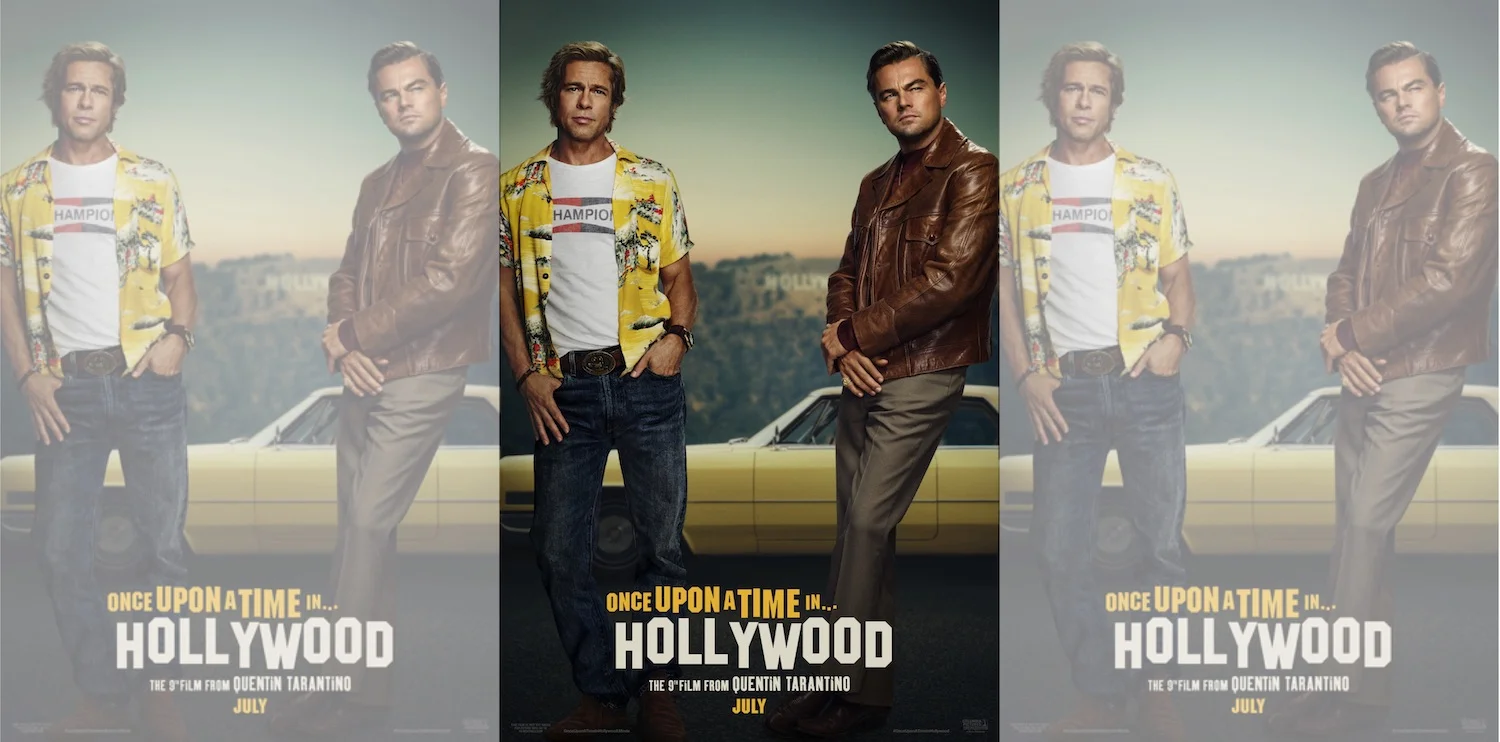Just Mercy (2019)
THE QUALITY OF MERCY IS NOT STRAINED—BUT IT IS OSCAR-WORTHY
Cinema history features myriad stories of one person taking on larger, more powerful interests, often in affecting and highly regarded films. Think of Mr. Smith Goes to Washington, in which newly appointed Senator Jefferson Smith (portrayed by James Stewart) rebels against a corrupt political machine. Or Norma Rae, with Sally Field in the title role, fighting to unionize a textile factory in order to secure safer working conditions. Or Erin Brockovich, with Julia Roberts as the eponymous character, battling an energy corporation that has contaminated local groundwater with poisonous chemicals.
Michael B. Jordan and Brie Larson in Just Mercy
Enter Bryan Stevenson (Michael B. Jordan), a newly minted, Harvard-educated attorney who chooses to forgo a lucrative corporate job in favor of returning to his native Alabama to fight for the legal rights of impoverished inmates treated unjustly by the law. To that end, he founds the Equal Justice Initiative, a “nonprofit organization that provides legal representation to people who have been illegally convicted, unfairly sentenced, or abused in state jails and prisons.” Mr. Stevenson enlists the aid of Eva Ansley (Brie Larson), a local wife and mother who, while not a lawyer herself, has decided to do her part to fight the institutional racism and classism inherent in the American legal system.
Films of this type—David versus Goliath tales—often follow a formula. An underdog takes up a just cause against a stronger opponent, suffers some reversals, then ultimately prevails over their seemingly superior adversary. Movies like Mr. Smith Goes to Washington feature fictional protagonists, while those like Norma Rae and Erin Brockovich chronicle the battles of real-life individuals. Both can be effective, but the imprimatur of reality can endow such stories with an added power. Such is the case with Just Mercy, and while the structure of the narrative treads a familiar procedural path, the journeys of the characters are well worth taking.
Mr. Stevenson begins his work in Alabama by visiting several inmates incarcerated on death row. One in particular, an African-American man named William McMillian (Jamie Foxx), avows his innocence of the crime for which he has been convicted. Known to family and friends as Johhny D, Mr. McMillian initially refuses to allow Mr. Stevenson to represent him. In addition to the unfair trial Johnny D claims to have faced, several attorneys have apparently taken money from his wife, Minnie (Karan Kendrick), but have provided virtually no effective legal assistance.
Jamie Foxx and Michael B. Jordan in Just Mercy
Mr. Stevenson does not attempt to convince his prospective new client to trust him, or make outsize promises about what he can and will do. Instead, he matter-of-factly goes about the business of reviewing the transcripts of Johnny D’s trial and the evidence employed to convict him. Mr. Stevenson meets with Johnny D’s family and neighbors, as well as the white sheriff (Michael Harding) who arrested him and the county’s new district attorney (Rafe Spall), also white. It soon becomes clear that Johnny D has indeed been convicted of a crime he did not commit. The case brought against him appears not just slim, but suspect, and potentially motivated, at least in part, by the fact of his having had an affair with a local white woman. Mr. Stevenson’s initial intention of seeking to have Johnny D’s death sentence commuted to life in prison shifts to attempting to obtain a new trial.
Rob Morgan (center) in Just Mercy
The simple act of Bryan Stevenson making a long drive to meet with Minnie McMillian convinces Johnny D of the lawyer’s trustworthiness. Under the careful guidance of director Destin Daniel Cretton, Michael B. Jordan delivers a quiet, thoughtful performance. The character maintains a steadfast resolve, and it is clear that Mr. Stevenson is fighting not only against a single miscarriage of justice, but against historical and systemic racism. Indeed, he also pursues the commutation of the death sentence of another inmate, Herbert Richardson (Rob Morgan). Mr. Richardson freely admits his culpability in the death of a young woman, but he also displays tremendous remorse for his unintended crime, the result, he insists, of post-traumatic stress disorder suffered as the result of his military service in Vietnam. During the war, he survived a brutal attack in which every other member of his platoon perished. Mr. Morgan gives a heartfelt and heartbreaking performance in the supporting role.
Although the overall arc of the story feels somewhat predicable, individual story beats are not. One example has the sheriff taking Mr. Stevenson to task for making assumptions of racism about white southerners. The moment unfolds in a way that calls the audience’s own expectations into question, although in the end, those expectations turn out to be wholly justified.
Indeed, the film promulgates the clear-eyed observation that the American system of justice proceeds on an uneven playing field—the result not just of racial bigotry, but also of the inability of those living in poverty to secure competent legal representation. Just Mercy—much like the efforts of the Equal Justice Initiative and organizations like it—also lays bare the immorality of capital punishment, addressing as it does the existence of wrongful convictions. While not a polemic, the film nevertheless roots itself in its perspective, but for the most part bolsters its case in a reasonable exploration of facts.
Tim Blake Nelson in Just Mercy
Just Mercy did not receive any Academy Award nominations, despite its superiority in many categories to films that did. Each member of its ensemble gives a solid performance, with particularly compelling turns by Jamie Foxx and Rob Morgan. Portraying other convicts, Tim Blake Nelson and O’Shea Jackson Jr. also shine, as does Karan Kendrick, who plays Walter McMillian’s wife, Minnie. It may be worth noting that both Sally Field and Julia Roberts took home Oscar gold for the lead performances mentioned above, while James Stewart received a Best Actor nod for his role. That Michael B. Jordan did not even get nominated for his role as Bryan Stevenson seems like an oversight. Likewise, Destin Daniel Cretton merited consideration for ably guiding his strong cast. Based on Bryan Stevenson’s 2014 memoir of the same name, the adaptation penned by Mr. Cretton and Andrew Lanham also deserved a serious look.
The cover of Bryan Stevenson’s memoir
In William Shakespeare’s The Merchant of Venice, the character of Portia pleads with Shylock for mercy. She implores him:
The quality of mercy is not strained.
It droppeth as the gentle rain from heaven
Upon the place beneath. It is twice blest:
It blesseth him that gives and him that takes.
In the case of this film, the quality of mercy is also a boon to its audience.
***⅝ (out of *****)
©2020 David R. George III
2019 • 2 HOURS, 17 MINUTES
WARNER BROS. • ENDEAVOR CONTENT • MACRO • NETTER PRODUCTIONS • ONE COMMUNITY • OUTLIER SOCIETY • PARTICIPANT
STARRING
• MICHAEL B. JORDAN, JAMIE FOXX
ALSO STARRING
• BRIE LARSON, O’SHEA JACKSON JR., TIM BLAKE NELSON, RAFE SPALL, ROB MORGAN
WRITTEN BY
• ANDREW LANHMAN & DESTIN DANIEL CRETTON (SCREENPLAY)
• BRYAN STEVENSON (BASED ON THE BOOK BY)
DIRECTED BY
• DESTIN DANIEL CRETTON
NO 2019 ACADEMY AWARD NOMINATIONS








